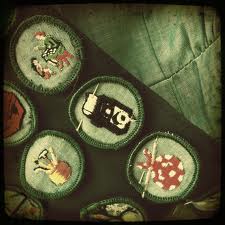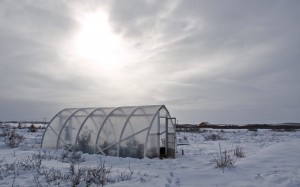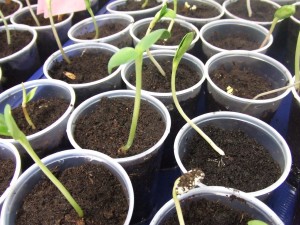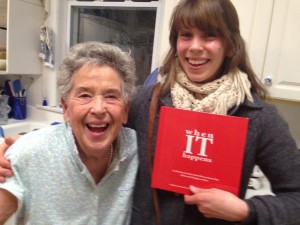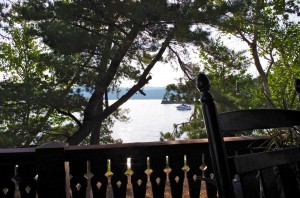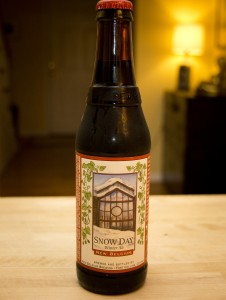Do you have a pickle dish? I don’t, but I grew up in a pickle dish family. My grandmother canned and pickles were a staple, always in the fridge with plenty more jars lined up in the pantry. Most meals at her house included pickles. They were just one of those things you made a place for on the table, like salt and pepper or butter. She served them in oblong cut-glass dishes, with little forks tucked in the side.

Towards the end of her life when my grandmother struggled to move around and unscrew the lids on pickle jars, the rest of us tried unsuccessfully to get her to forego the pickle dish. Just put the jar on the table. That’s good enough.
The rest of us – visiting for the weekend from school and work and used to slap-it-on-the-table meals at our own homes – wanted the cooking and cleaning and towel-drying over with sooner. Her way wasn’t our way and doing it my grandmother’s way meant more work for us. All those special dishes pulled out of their spots in the cabinet, put into service on the table, emptied, cleaned, and put back again – and most of us didn’t eat many pickles either. Why was this worth it to her?
I should point out here that I was once annoyed by the suggestion that bagged ice ought to be emptied into a serving bowl. A friend’s mother asked to host her son’s birthday party at the Wesley Foundation and, after turning on the lights and hauling out one of our travel coolers to throw the bag of ice in, I was surprised when she asked if there was something nicer we could arrange.
For someone who has prided herself on offering hospitality, I’ve been clueless about some of the finer points. Let’s face it, there are times when the way someone offers hospitality doesn’t feel very welcoming and doesn’t incline you to make yourself at home. But that can happen as easily through a thoughtless simple cooler as it can through a thoughtful fussy pickle dish.
Here’s the real confession: I now have a cake saver. One of those cut-glass, pedestal, domed cover things that seem so very Betty-Crocker-1955. I don’t make many cakes or pies and I am strict about how many one-purpose items clutter up the kitchen. So , for a long time I thought keeping a cake saver on hand for those infrequent occasions was unnecessary.
I don’t know why, but a couple of years ago I started to think otherwise. I wanted a cake saver. I had no grand plans to become a pastry chef or to start having a cake for Sunday dinner each week. I simply thought it might be nice to have for those times when I did have a cake or pie to serve – or maybe even for a mound of cookies.
Visiting with my parents at the house that was once my grandmother’s, I found the cake saver in the same cabinet where she kept the pickle dishes. No one’s baking cakes there anymore and nobody else in the family had claimed it, so I did.
Most of the time it sits up high on top of my kitchen cabinets and needs to be dusted when I bring it down. But when I use it I see what was harder for me to understand when I just wanted to get the kitchen chores over with. I see in it an attentiveness to beauty and delight, and hospitality deeper than the dish but showcased in it.
It’s worth it to make a place for all that on the table.
*
photo credit: © 2010 Lauren Mitchell, CC BY 2.0

